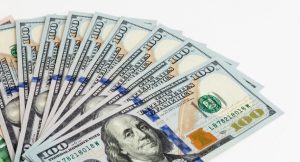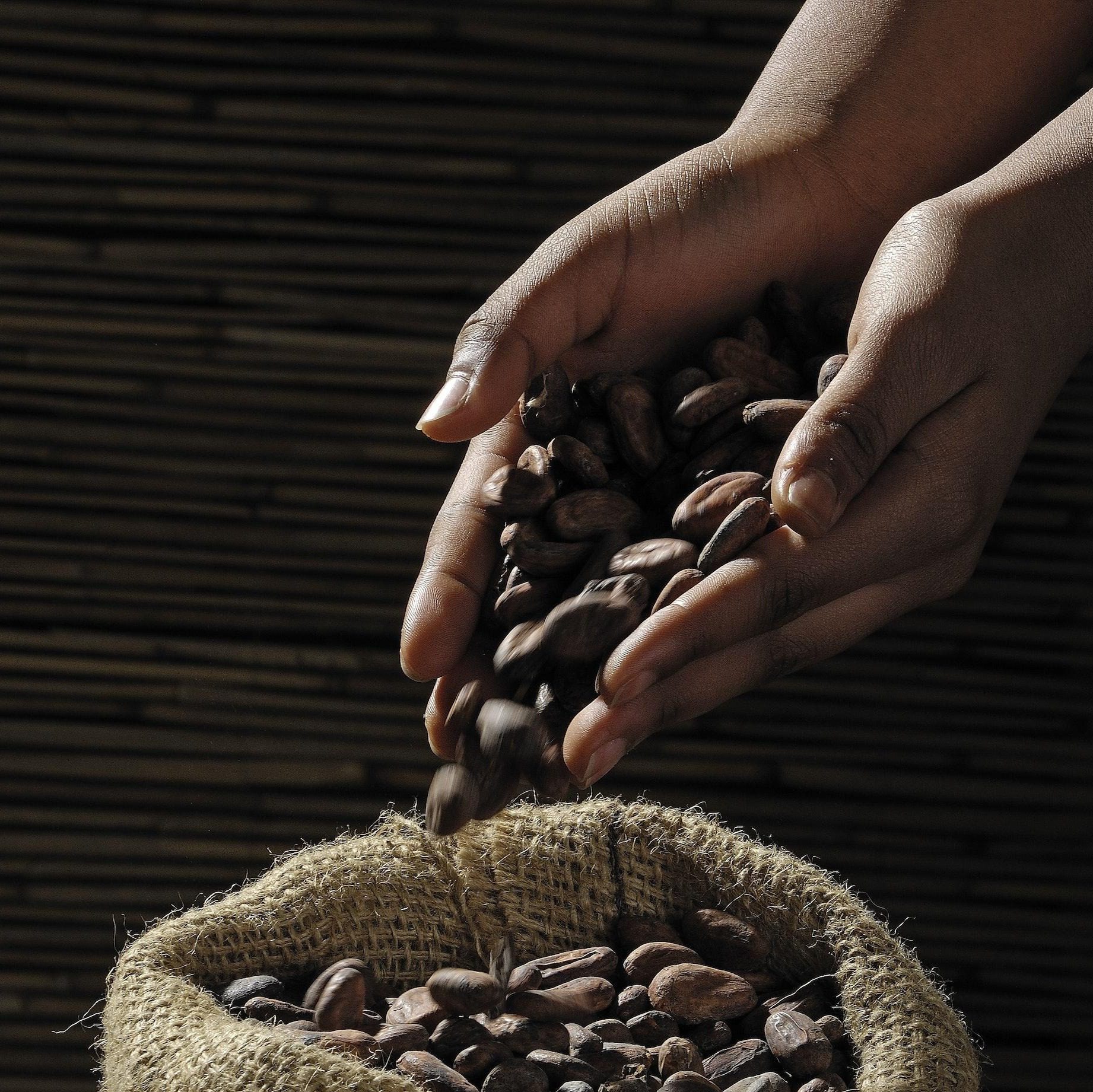MARKETERS WARN AGAINST DISRUPTION AS DANGOTE PLANS DIRECT FUEL SUPPLY
The Natural Oil and Gas Suppliers Association of Nigeria has warned that the Dangote Petroleum Refinery’s plan to bypass existing distribution channels and supply refined petroleum products directly to end-users would lead to a nationwide disruption, long-term product scarcity, and the collapse of existing supply networks. The oil and gas suppliers called on the refinery to halt its plan and seek further dialogue before commencing the distribution of products to end users, urging it to learn from what happened to non-functional refineries under the management of the Nigerian National Petroleum Company Limited. They also called on President Bola Tinubu to intervene in the issue, stressing that Dangote alone cannot handle nationwide distribution of products sustainably. The NOGASA National President, Bennett Korie, made the call during the association’s Annual General Meeting held on Thursday in Abuja. However, an official of the Dangote Group described the position of the dealers as anti-Nigeria, arguing that the plan by Dangote was to remove the cost of logistics in the movement of petrol nationwide. Speaking with The PUNCH, while reacting to the development, the National President of the Petroleum Products Retail Outlet Owners Association of Nigeria, Billy Gillis-Harry, said Nigerians should not rejoice yet over the announcement by the Dangote refinery, as he backed the sister oil marketing group, NOGASA. Meanwhile, it was observed on Thursday that the prices of petrol at depots spiked by up to seven per cent, from the N815 per litre it sold on Wednesday to N870 per litre on Thursday. Recall that the $20bn Dangote refinery recently disclosed plans to deploy 4,000 new Compressed Natural Gas-powered tankers for nationwide distribution of petrol and diesel directly to marketers, manufacturers, telecom firms, aviation companies, and other large consumers, bypassing traditional depots and intermediaries. The refinery took delivery of 4,000 new CNG-powered trucks for its fuel distribution initiative, scheduled to be launched on August 15. The initiative, which is intended to provide more efficient transportation across Nigeria and beyond, has been applauded by some industry experts. With the investment of N720bn, the initiative is expected to save Nigerians over N1.7tn annually, and lift 42 million Micro, Small, and Medium Enterprises by reducing energy costs and enhancing profitability. The refinery said the strategic programme is part of its broader commitment to eliminating logistics costs, enhancing energy efficiency, promoting sustainability, and supporting Nigeria’s economic development. However, Korie, speaking in his address, said if existing retail outlets were forced out of business due to Dangote’s direct distribution approach, it would be difficult to revive the supply chain in the event of any disruption at the refinery. He further warned that handling refining, distribution, and retail through filling stations as a single entity is unsustainable, citing the failed attempt by the Nigerian National Petroleum Company Limited at direct distribution. He stated that the state-owned refineries began to decline after the oil company ventured into retail distribution. “We are pleading that Mr President should intervene in this matter by telling Dangote to slow down, and go by the rules of the game. Nobody’s against the refinery. If there’s anybody who supported Dangote Refinery more than any other organisation, it is this association. “But when this issue came up, we said, no, we need to advise, we need to give you an idea how to go about it. What is important to us is that the refinery is blending, the product is coming out, and Nigerians are enjoying the product that is blended today.

NGX GAINS N400BN AS INVESTOR APPETITE LIFTS INDEX
The Nigerian Exchange Limited opened the week on a bullish note as renewed investor confidence drove a market capitalisation gain of N400bn. The benchmark All-Share Index increased by 713.58 points, representing a 0.53 per cent rise to close at 135,166.51. This positive performance pushed the total market capitalisation to N85.5tn at the close of trading on Monday, reflecting strong buying interest across key sectors and sustained momentum from previous weeks. On a broader level, the All-Share Index has now advanced by 2.53 per cent over the past week, 12.64 per cent in four weeks, and 31.32 per cent since the beginning of the year. A total of 127 listed equities participated in trading during the session, resulting in 45 gainers and 26 losers. The market saw an uptick in investor activity, with 795,593,090 shares exchanged in 37,626 deals, amounting to a total market value of N23.23bn. This represented an 11 per cent increase in trading volume and a 51 per cent rise in the number of deals, although the total turnover declined by four per cent when compared with the previous session. Academy Press led the gainers’ chart after appreciating by 9.99 per cent to close at N10.24 per share. It was followed by Champion Breweries, which rose by 9.98 per cent to N13.55; Tripple Gee and Company, which increased by 9.97 per cent to N3.86; and May and Baker Nigeria, which advanced by 9.94 per cent to close at N18.80. Other top gainers included UACN, which gained 9.92 per cent and UPDC Real Estate Investment Trust, which added 9.88 per cent to close at N9.45. On the flip side, Livestock Feeds led the losers with a 10 per cent decline to close at N8.10. The Initiates Plc followed closely with a 9.98 per cent drop to N14.52. Ellah Lakes shed 9.08 per cent to close at N8.91, while Nigerian Exchange Group lost 6.02 per cent to close at N75.00. Other notable laggards were Thomas Wyatt Nigeria and Africa Prudential, which declined by 5.54 per cent and 4.94 per cent, respectively. In terms of volume, Fidelity Bank recorded the highest number of traded shares with 123 million units valued at N2.58bn. FCMB followed with 68.4 million shares, while Japaul Gold and Ventures exchanged 44.1 million shares. Zenith Bank and Access Corporation also featured prominently on the volume chart with 31 million and 29 million shares traded, respectively. For value, Fidelity Bank led the pack with N2.58bn worth of shares traded, followed by Zenith Bank with N2.25bn, MTN Nigeria with N1.66bn, Okomu Oil with N1.60bn, and Dangote Cement, which recorded trades worth N1.48bn. Sector performance reflected the broader market strength, as most indices closed in the green. The Consumer Goods Index rose by 1.29 per cent, bringing its year-to-date gain to 69.49 per cent. The Insurance Index advanced by 2.54 per cent and is up 28.23 per cent year-to-date. The Industrial Index climbed by 0.64 per cent, while the Premium and Main Board Indices added 0.58 per cent and 0.5 per cent respectively. The Top 30 Index also gained 0.44 per cent. The market’s strong start to the week suggests growing investor optimism, particularly in sectors like banking, consumer goods, and industrials, as players continue to respond to corporate earnings announcements, macroeconomic developments, and positioning for the second half of the year.
NGX CLOSES JULY STRONG, GAINS N12.62TN
The Nigerian Exchange closed the month of July 2025 on a bullish note, recording a significant N12.62tn gain in market capitalisation. The All-Share Index appreciated by 0.42 per cent on the last trading day of the month to settle at an all-time high of 139,863.67 points, up from the previous close of 139,278.67 points. This final session capped a 21-day consecutive rally and brought the month-to-date return to 17.03 per cent. Week-on-week, the ASI advanced by 3.97 per cent, while the year-to-date gain stood at 34.60 per cent. At the close of trading on Thursday, July 31, a total of 1.1bn shares valued at N32.99bn were exchanged in 37,365 deals. Compared to the previous day’s session, the market recorded a 24 per cent increase in volume, a two per cent decline in turnover, and a three per cent increase in the number of deals. A total of 127 listed equities participated in the day’s trading, with 28 gainers and 54 losers. UAC of Nigeria led the gainers with a 10 per cent increase in share price, closing at N80.30 per share. It was followed by Wema Bank and Guinness Nigeria with gains of 10 per cent and 9.96 per cent, respectively. Skyway Aviation Handling Company and Mecure Industries also recorded notable increases of 9.95 per cent and 9.69 per cent, respectively. On the losers’ side, The Initiates Plc declined by 10 per cent to close at N13.50. AXA Mansard Insurance, Learn Africa, and FTN Cocoa Processors also fell by 10 per cent each, while Ikeja Hotel and HMC Allied Devices recorded losses of 9.96 per cent and 9.94 per cent, respectively. In terms of volume, FCMB Group led with 121.5m shares traded, followed by Universal Insurance with 91.5m shares, Fidelity Bank with 81.1m shares, and Regency Alliance Insurance with 64.5m shares. On the value chart, Lafarge Africa led with trades worth N3.53bn, followed by Dangote Cement with N2.85bn, MTN Nigeria with N2.83bn, and GTCO with N2.45bn. Fidelity Bank also featured trades valued at N1.7bn. Performance across key indices was also positive. The Top 30 Index rose by 0.5 per cent, the Industrial Index advanced by 1.35 per cent, and the Premium Index gained 1.04 per cent. The Oil & Gas Index rose by 0.94 per cent, the Pension Index appreciated by 0.35 per cent, and the Banking Index inched up by 0.08 per cent. As of the end of July, the market capitalisation stood at N88.4tn, reflecting sustained investor optimism and positioning across key sectors ahead of earnings season and macroeconomic reforms.

NAIRA ENDS JULY AT 1,533.55/$, DOWN 0.25%
The naira closed out July 2025 at N1,533.55/$ at the official market, the Nigerian Foreign Exchange Market, data from the Central Bank of Nigeria revealed on Thursday. This is about 0.25 per cent weaker than the 1,529.71/$ that it had closed in June, indicating improved stability in the foreign exchange market. In the middle of the month, the naira strengthened to a four-month high against the US dollar to close at 1518/$ on July 14th. This marks the naira’s strongest performance since March 14, 2025, and the first time it traded below N1520/$ since that period, signaling a wave of positive momentum for the nation’s currency. However, since then, the currency has reverted to trading within the band of 1,530/$ – 1,535/$ at the NFEM. Market watchers have maintained that the interventions of the Central Bank of Nigeria have helped to provide stability for the naira alongside increased inflow of forex from foreign investors. At the parallel market, the naira has also become more stable, with the spread between the official and parallel market rates closing. This helps to eliminate speculation in the forex market. On Thursday, the naira depreciated at the parallel market by 32 bps to print at N1,545/$, according to CardinalStone. Also, Nigeria’s gross foreign reserves have experienced some appreciation. As of July 30, 2025, it rose to about $39.36bn from $37.19bn at the beginning of the month. During the month, the CBN governor, Olayemi Cardoso, revealed that the reserves reached over $40bn, marking their highest level in 33 months. He disclosed this at a symposium in Abuja, which coincided with the unveiling of the compendium, ‘Promoting Stability in an Era of Economic Reforms: The Journey So Far,’ celebrating the first anniversary of the Bank’s management team. Meanwhile, the United States dollar was poised for its first monthly gain of the year against major currencies on Thursday, on the back of easing trade tensions and US economic resilience. The US Federal Reserve left interest rates unchanged on Wednesday, ignoring persistent calls by President Donald Trump to lower borrowing costs. The Fed Chair Jerome Powell also indicated he was in no rush to cut rates. According to Reuters, the dollar strengthened against the Japanese yen, trading at its highest level since May 28. It is on track to gain 4.4 per cent for July, making it the biggest monthly increase since December 2024. It was last up 0.62 per cent at 150.44. The dollar index was flat at 99.85 after rising nearly one per cent in the previous session. It is on track for the first monthly gain in 2025.
FG’S FX WINDFALL CRASHES 73% TO N589BN IN H1
Revenue from foreign exchange rate gains crashed by 73 per cent in the first half of 2025, falling to N589.45bn from N2.199tn recorded in the same period of 2024, signalling a major shift in Nigeria’s fiscal structure as arbitrage opportunities continue to dry up. The data, obtained from the Federation Account Allocation Committee, shows a significant reduction in the contribution of exchange rate differentials to total allocations. In the first half of 2024, FX gains accounted for 30.7 per cent of FAAC distributions. That share declined to just 6.06 per cent in the corresponding period of 2025, indicating that the fiscal windfall from currency mismatches is no longer a reliable source of revenue. Despite the steep decline in this income stream, total FAAC disbursements rose to N9.723tn between January and June 2025, representing a 35.6 per cent increase compared to the N7.171tn shared during the same period in 2024. This increase was largely driven by non-FX-related revenues, indicating the Federal Government’s growing reliance on more stable revenue sources. The sharp decline in FX-related revenue has been linked to the adjustment in the government’s exchange rate benchmark. In 2024, while the official budget benchmark was set at N800 to the dollar, market rates averaged around N1,455, allowing the government to book massive gains when converting foreign inflows. However, by the end of 2024, this gap had narrowed significantly, and in January 2025, the government adopted a benchmark of N1,500 to the dollar, aligning more closely with prevailing market rates. As a result, exchange rate gains of N402.71bn were shared in January 2025, based on revenues earned in December 2024. From February to March, however, there were no recorded FX gains. This coincided with the Central Bank of Nigeria’s average official rates of N1,475 and N1,500 in January and February, respectively, virtually matching the government’s benchmark and eliminating the arbitrage margin. The trend continued into mid-year. In June 2024, FAAC shared N507.46bn in exchange rate revenue out of a total N1.143tn—representing 44 per cent. By June 2025, the contribution from FX gains had declined to N76.61bn, accounting for just 4.6 per cent of the N1.659tn total distribution for the month. Despite the decline, the Federal Government continued to take the largest share of the reduced pool. Of the N589.45bn shared in FX gains between January and June 2025, the Federal Government received N280.93bn. State governments got N140.26bn, Local Government Councils received N113.14bn, while oil-producing states received N64.52bn under the 13 per cent derivation principle. In the first half of 2024, the Federal Government had received N889.93bn from exchange rate gains, while states got N450.10bn, LGs received N362.08bn, and oil-producing states received N200.91bn. This translates to a year-on-year drop of 68.4 per cent for the Federal Government, 68.8 per cent for states, 68.7 per cent for Local Governments, and 67.9 per cent for derivation-based revenue. The pattern shows the heavily centralised nature of Nigeria’s fiscal system, in which the Federal Government remains somewhat cushioned from revenue shocks, while subnational entities face more acute fiscal pressures. The PUNCH earlier reported that the Central Bank of Nigeria injected a total of $4.1bn into the foreign exchange market in the first half of 2025, a move aimed at stabilising the naira and easing liquidity pressures in the currency market. This figure, which is more than three times the $1.3bn recorded during the same period in 2024, was contained in the latest CSL Stockbrokers’ H2 2025 Outlook report. According to an analysis of the data from the report, there was a 215% increase. CSL Stockbrokers Limited is a member of FCMB Group and also a member of the Nigerian Stock Exchange. This came as industry analysts expressed concerns over the sustainability of the currency defence strategy, citing weak oil earnings, subdued foreign portfolio investment inflows, and uncertainties around external financing. However, members of the Organised Private Sector argued that no responsible central bank would allow market forces to solely determine the value of its currency without some form of intervention to ensure stability. Also, The PUNCH observed that Nigeria’s gross external reserves fell by $3.67bn in the first half of 2025, based on data obtained from the Central Bank of Nigeria. According to the CSL Stockbrokers’ report, the CBN’s aggressive intervention reflects a stronger commitment to defending the naira amid persistent volatility and weak capital inflows. The naira, which opened the year at N1,535 to the US dollar in the official market, appreciated slightly to N1,530/$ by the end of June, supported largely by these FX injections. The report read, “The local currency, which opened the year at around N1,535/$ in the official market, posted a marginal appreciation to close the first half at around N1,530/$, reflecting a YTD gain of 0.4 per cent. This relative stability was largely underpinned by sizable interventions from the CBN, which we believe helped contain depreciation pressures, especially during periods of heightened volatility. “Notably, the apex bank injected about $4.1bn into the FX market in H1 2025, well above the $1.3bn provided during the same period last year, demonstrating a stronger commitment to supporting market liquidity.” CSL noted that the apex bank’s interventions were most pronounced in April, when the naira temporarily weakened to N1,630/$ following heightened investor risk aversion triggered by the announcement of new US trade tariffs. “It is worth highlighting that in April, when foreign currency inflows were limited and the exchange rate temporarily weakened to as high as N1,630/US$, amid investor risk aversion triggered by the announcement of US trade tariffs, net FX inflows from the CBN surged to the highest level so far this year,” the report stated. Despite the interventions, CSL expressed concerns over the sustainability of the currency defence strategy, citing weak oil earnings, subdued foreign portfolio investment inflows, and uncertainties around external financing. The report added, “We believe that the central bank will remain committed to defending the Naira, which could allow the exchange rate trade between the N1,500-N1,600/US$ band in the second half of the year. “However, without a material improvement in FX inflows, either through stronger oil revenues, renewed FDI and FPI momentum, or access to external financing, the sustainability of the defence strategy could come under increased scrutiny in the next six to twelve months.”

- CAPITALDIGEST MARKET REVIEW, 09/02/2026February 9, 2026
- CAPITALDIGEST DAILYNEWS, 09/02/2026February 9, 2026
- CAPITALDIGEST MARKET REVIEW, 02/02/2026February 2, 2026
Enter your email address for receiving valuable newsletters.
- CAPITALDIGEST MARKET REVIEW, 09/02/2026U.S. DOLLAR REBOUND TO BE CUT SHORT BY RATE CUT BETS, DOUBTS OVER FED INDEPENDENCE:...February 9, 2026
- CAPITALDIGEST DAILYNEWS, 09/02/2026TAXES, FUEL HIKE SLOW BUSINESS GROWTH IN JANUARY – NESG REPORT The report showed that...February 9, 2026
- CAPITALDIGEST MARKET REVIEW, 02/02/2026DOLLAR WEAKENS ACROSS THE BOARD AS YEN CLIMBS ON INTERVENTION RISK The dollar moved sharply...February 2, 2026












